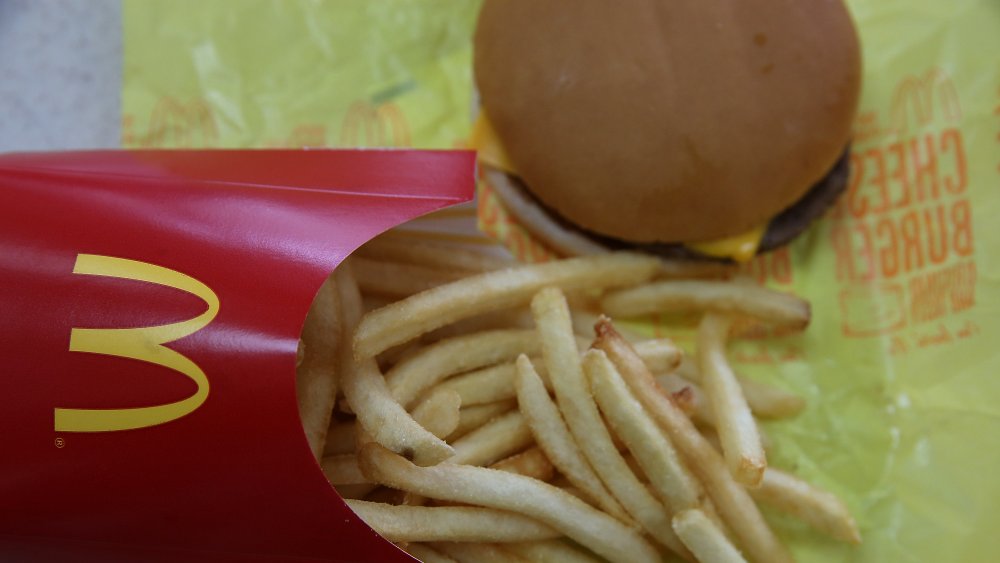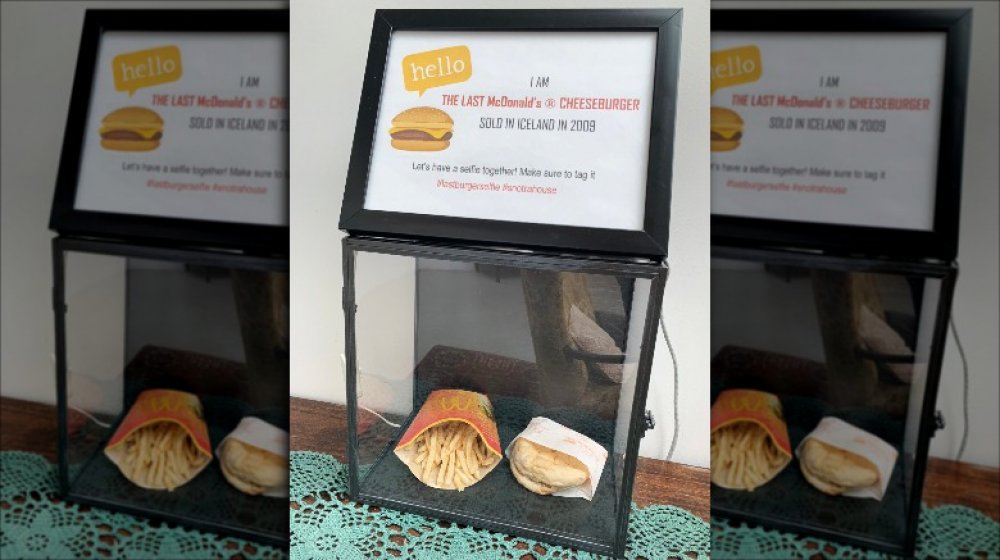Here's What McDonald's Says About The 24-Year-Old Burger That Won't Rot
If you're like us, you're seriously re-thinking your guilty, one-Quarter-Pounder-won't-hurt-will-it? McDonald's habit. Have you watched the TikTok video showing a grandmother removing a 24-year-old Mickey D's burger out of a box, looking nearly as good as it did a quarter of a century ago? It's the most recent internet sensation to sweep through social media, and has now migrated to Youtube, where viewers have taken the opportunity to practice the art of snark, remarking "that burger lasted longer than most people's marriages," and "If you eat enough McDonald's you will be preserved forever too. No embalming needed."
Haven't seen the video? Maybe you've visited that Snotra House, a hostel in southern Iceland, that, as of 2019, was drawing people from all over the world, coming to gawk at a decade-old McDonald's burger, whose only sign of aging is the wrapping (via BBC). McDonald's, of course, claims that the only artificial ingredient in its classic burgers is a pickle. And now, reacting to the tsunami of ire and consternation sweeping through the internet (yet again), it's released another statement in defense of its non-decomposing burgers.
"In the right environment, our burgers, like most other foods, could decompose," says McDonald's, however, "without sufficient moisture — either in the food itself or the environment — bacteria and mold may not grow and therefore, decomposition is unlikely." McDonald's further claims that, under the right conditions, the burgers you prepare at home would react similarly.
Is the science behind McDonald's explanation plausible?
Mummified McDonald's burgers are not a new phenomenon. Serious Eats writer, J. Kenji Lopez-Alt, conducted an experiment in 2010. Lopez-Alt prepared nine different burger combinations (the Big Mac included), all of which were left out in the open for three weeks. The McDonald's burger, predictably, didn't rot. Neither did many of his homemade burgers or patties. Lopez-Alt concluded that "any burger of the same shape [as a McDonald's burger] will act the same way."
Lopez-Alt further noted that those burgers showing signs of decay had thicker patties with smaller surface areas, causing them to retain moisture longer, and giving mold time to form. A Big Mac's thin patty and large surface area, on the other hand, dries out quickly (losing 93 percent of their moisture within the first three days), turning into the burger equivalent of beef jerky. When Lopez-Alt stuck a McDonald's burger and a homemade version into a moisture-conducive sealed-plastic bag, both rotted.

